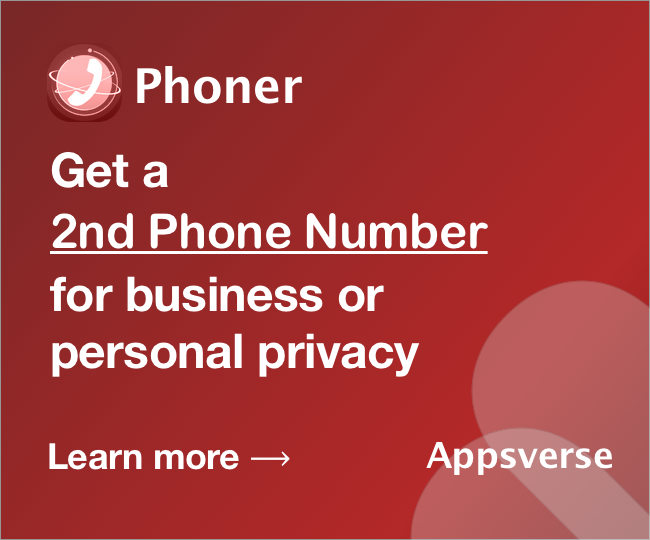Apartment hunting for beginners can be a daunting task, especially if you have never done it before. Whether you are a student, a recent graduate, or simply looking to upgrade your living situation, finding the perfect apartment can take time and effort. In this article, we will discuss how to start hunting for apartments, some of the best places to look for apartments, and the top common questions regarding apartment hunting for beginners.
Why Is Apartment Hunting So Hard?

One of the main reasons apartment hunting can be so difficult especially for beginners is because of the sheer number of options available. There are countless apartment complexes, rental websites, and property managers all vying for your attention. This can make it difficult to narrow down your options and find the apartment that is right for you.
Additionally, many apartments have strict requirements for tenants, including income verification, credit checks, and background checks. This can make it difficult for those who are just starting out or who have less than perfect credit to find an apartment.
How Do I Hunt For My First Apartment?
When hunting for your first apartment, there are a few things you should keep in mind.
- Be realistic about your budget: It can be tempting to choose an apartment with all the bells and whistles, but it is important to choose an apartment that fits within your budget and won't leave you struggling to make ends meet.
- Make a list of the amenities that are important to you: This might include things like a washer and dryer in the unit, a balcony or patio, or a pool and fitness center. Keep in mind that some amenities may come with a higher price tag, so prioritize the ones that are most important to you.
- Have all the necessary documentation ready: Such documents include your income verification, credit score, and rental history. Landlords and property managers will likely ask for this information, so having it on hand will help speed up the process.
- Research on the areas you are interested in: Consider factors such as safety, accessibility to public transportation, and local amenities like grocery stores and restaurants.
- Schedule a tour: This will give you a chance to see the apartment in person and get a feel of the atmosphere and neighborhood. Make sure to ask any questions you may have. Do check about the application process and any requirements the landlord may have.
Best Places to Look for Apartments
There are many places to look for apartments, both online and offline. Here are some of the best options:
- Online Rental Websites - Websites like Zillow, Trulia, and Apartments.com are great places to start your apartment search. You can search by location, price, and amenities, and even schedule tours of apartments online.
- Local Classifieds - Many local newspapers and classified websites, such as Craigslist, have apartment listings. These listings may be more affordable than those on larger rental websites, but be sure to use caution when dealing with individual landlords.
- Social Media - Many landlords and property managers post apartment listings on social media platforms like Facebook, Instagram and TikTok. You can also join local groups and pages to stay up-to-date on available apartments in your area.
- Real Estate Agents - If you are looking for a more personalized apartment search, consider working with a real estate agent. They can help you find apartments that meet your specific needs and budget, and may even have access to listings that are not publicly available.
How Should A Beginner Budget For An Apartment?
Finding an apartment that fits within your budget can be a daunting task, especially for first-time renters. However, with careful planning and a clear understanding of your financial situation, you can create a realistic budget that will help you find the perfect apartment without breaking the bank. Here are some tips for beginners to help them budget for an apartment.
- Determine your monthly income and expenses: The first step in creating a budget is to determine your monthly income and expenses. Make a list of all your sources of income, including your job, any side hustles, and any other money you receive regularly. Then, make a list of all your monthly expenses, including rent, utilities, groceries, transportation, and entertainment.
- Decide on a percentage of your income for rent: The general rule of thumb is that your rent should not exceed 30% of your monthly income. For example, if you make $3,000 per month, you should aim to spend no more than $900 on rent. Keep in mind that this is just a guideline, and you may need to adjust it depending on your other expenses.
- Consider additional expenses: In addition to rent, there may be additional expenses associated with renting an apartment, such as utilities, internet, and parking. Be sure to factor in these expenses when creating your budget.
- Research neighborhoods: The cost of rent can vary widely depending on the neighborhood you choose. Research different neighborhoods to find one that fits within your budget while still meeting your needs.
- Look for ways to save money: There are many ways to save money when renting an apartment, such as living with roommates, choosing a smaller apartment, or living further from the city center. Consider these options when creating your budget.
What Do First Time Renters Need To Know?
If you're a first-time renter, there are several things you should keep in mind when hunting for an apartment. Here are a few key considerations:
- Your credit score: Your credit score is an important factor in determining whether you'll be approved for an apartment. Make sure to check your credit score before starting your search and address any issues that may be affecting it.
- Your rental history: If you're a first-time renter, you may not have a rental history for landlords to reference. Be prepared to provide references from other sources, such as your employer or personal references.
- Move-in costs: In addition to rent, there may be additional move-in costs, such as a security deposit or first and last month's rent. Make sure to factor these costs into your budget.
- Lease agreements: Make sure to carefully review the lease agreement before signing. Pay attention to details such as the length of the lease, rent due dates, and pet policies.
- Landlord communication: Good communication with your landlord is key to a successful renting experience. Make sure to establish clear lines of communication and address any concerns promptly.
How Do First Time Renters Stand Out?

For beginners who are apartment hunting, it can be challenging to stand out from the crowd of applicants when searching for an apartment. However, with some effort and preparation, you can make yourself a more attractive candidate to potential landlords. Here are some tips for how to stand out as a first-time renter:
- Be prepared: Make sure you have all the necessary documentation, such as your ID, proof of income, and references, ready to go when applying for apartments. This shows landlords that you're serious and organized.
- Show responsibility: Highlight any experiences that demonstrate your responsibility, such as paying bills on time, maintaining good credit, or taking care of a pet.
- Be professional: Dress appropriately and speak clearly when meeting with landlords or property managers. Presenting yourself professionally can make a positive impression.
- Show interest: Demonstrate your interest in the apartment by asking thoughtful questions and expressing enthusiasm about the property.
- Be flexible: If possible, be flexible with your move-in date or lease term. This can make you a more attractive candidate in a competitive rental market.
What Do Landlords Look For In A Tenant?
When looking for tenants, landlords have certain criteria they look for to ensure that they choose a responsible and reliable tenant. Here are some things that landlords commonly look for in a tenant:
- Good credit: Landlords often check credit scores to assess a tenant's financial responsibility and ability to pay rent on time.
- Stable income: Landlords want to ensure that tenants have a stable income and can afford the rent. Be prepared to provide proof of income, such as pay stubs or bank statements.
- Positive rental history: Landlords often check rental history to see if tenants have a track record of paying rent on time and being responsible tenants.
- References: Landlords may ask for references from previous landlords or personal references to get a sense of a tenant's character and reliability.
- Clean criminal record: Landlords may also conduct background checks to ensure that potential tenants don't have a criminal record or history of evictions.
How Do I Keep Track Of My Apartment Hunting?
Here are some tips on how to keep track of your apartment hunting with a little organization and planning:
- Create a spreadsheet: Use a spreadsheet to keep track of the properties you've viewed, including the address, rent, number of bedrooms, and any other important information. You can also add columns for notes and pros and cons to help you remember each property.
- Use a notebook: Take a notebook with you when you view properties to jot down notes and impressions. You can also use the notebook to keep track of important information, such as the landlord's contact information and the lease terms.
- Take photos and videos: Use your phone to take photos and videos of the properties you view. This will help you remember the layout and condition of each property when you're making your final decision.
- Set reminders: Use your phone or a calendar app to set reminders for important dates, such as when your lease is up or when you need to submit your application.
- Keep all documents in one place: Create a folder or file on your computer to keep all the documents related to your apartment search, including applications, leases, and rental agreements. This will make it easier to find the information you need when you need it.
How Do I Not Get Scammed For Apartment Hunting?
Unfortunately, apartment rental scams are common, and it's important to know how to protect yourself when searching for a new home. Here are some tips on how to avoid apartment rental scams:
- Research the property: Before scheduling a viewing or submitting an application, research the property online. Look for reviews and check the property's website or listing to ensure it's legitimate.
- Don't wire money: Never wire money to a landlord or property manager before seeing the property in person. Scammers often ask for upfront payment, but legitimate landlords will not ask for money before you sign a lease.
- Be wary of deals that seem too good to be true: If the rent is significantly lower than comparable properties in the area, it may be a red flag. Scammers often use low prices to lure in potential victims.
- Meet the landlord in person: Whenever possible, meet the landlord or property manager in person before signing a lease. If they are hesitant to meet in person, it may be a sign of a scam.
- Trust your instincts: If something feels off or too good to be true, it probably is. Trust your instincts and don't be afraid to walk away from a deal if you're unsure.
- Check for a real estate license: Some states require landlords and property managers to have a real estate license. Check to see if the person you're dealing with is licensed to avoid potential scams.
- Get everything in writing: Make sure to get all lease terms and agreements in writing, and don't sign anything until you've read and understood all the terms. If a landlord is hesitant to provide a written agreement, it may be a sign of a scam.
Bonus Tip: Do a Reverse Lookup on the landlord's phone number to find out who it belongs to

This can be useful when you're trying to verify the identity of a landlord or property manager. To use Phoner app's reverse lookup function to check if a landlord is legitimate, follow these steps:
- Open the Phoner app on your phone.
- Click on the "Reverse Lookup" option.
- Enter the phone number of the landlord or property manager you want to verify.
- Click on "Search."
- Phoner app will provide you with information about the phone number, including the name of the person or business associated with the number.
If the information provided by Phoner app matches the name and contact information provided by the landlord or property manager, it's a good sign that they are legitimate. However, if the information does not match, or if the phone number is associated with known scams or fraudulent activity, it's best to proceed with caution.
Keep in mind that Phoner app's reverse lookup function is not foolproof and may not always provide accurate or up-to-date information. It's important to do your own research and use multiple sources to verify the identity of a landlord or property manager before entering into a rental agreement.
Overall, it's important to do your due diligence when searching for an apartment to avoid scams and protect yourself. Trust your instincts, research the property and landlord, and get everything in writing to ensure a smooth and safe rental experience.

 4.5/5 on App Store
4.5/5 on App Store





